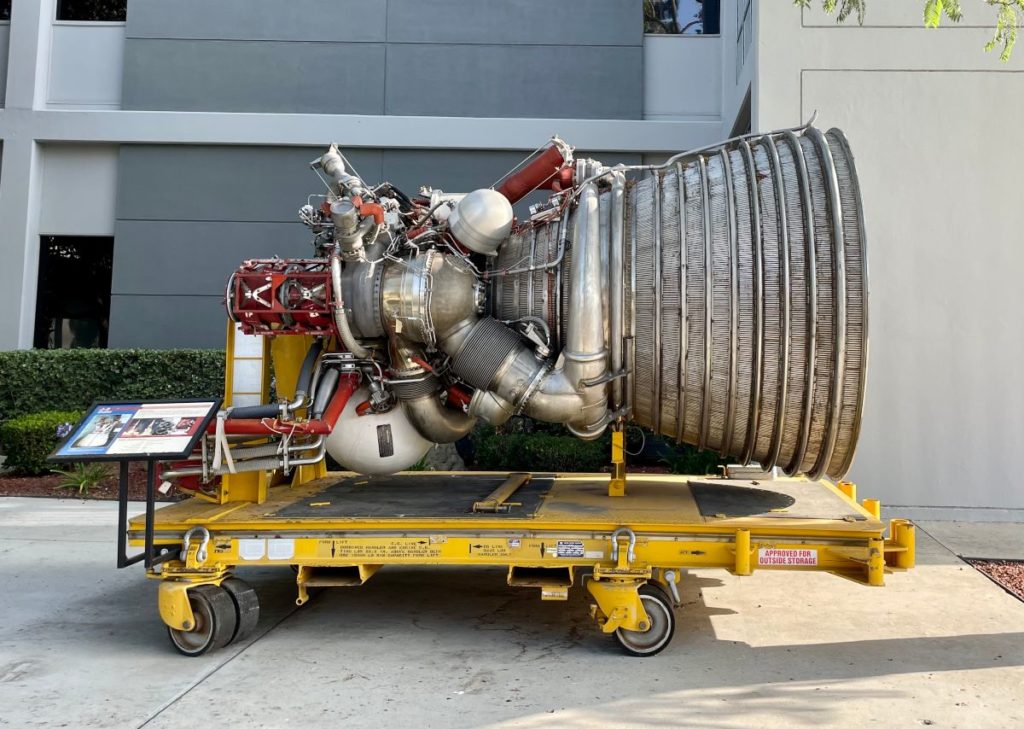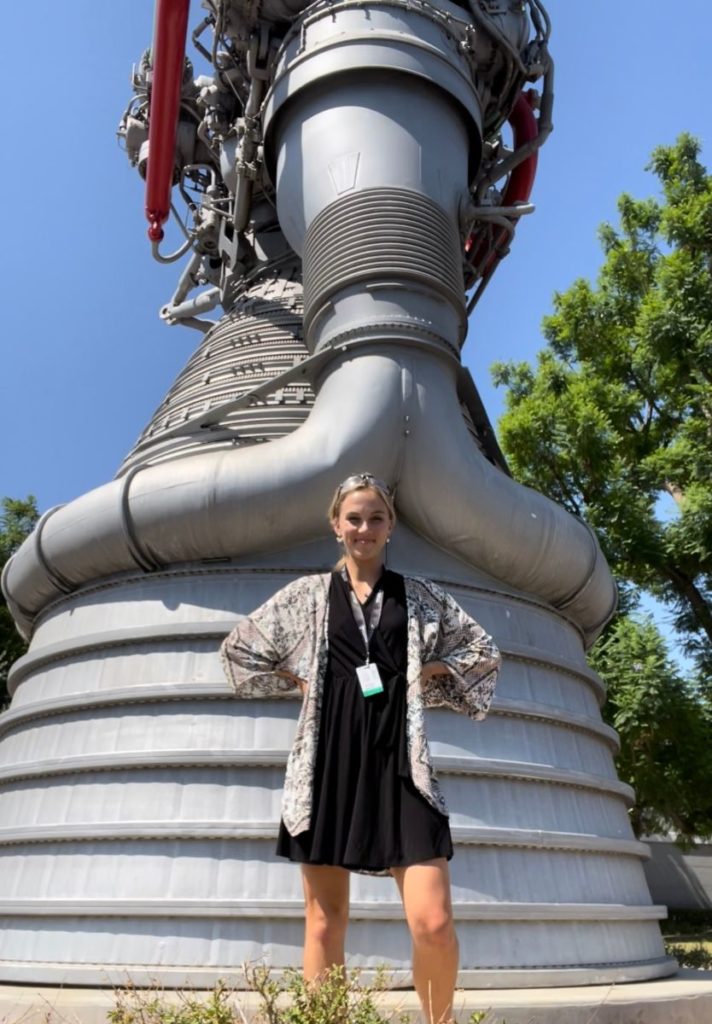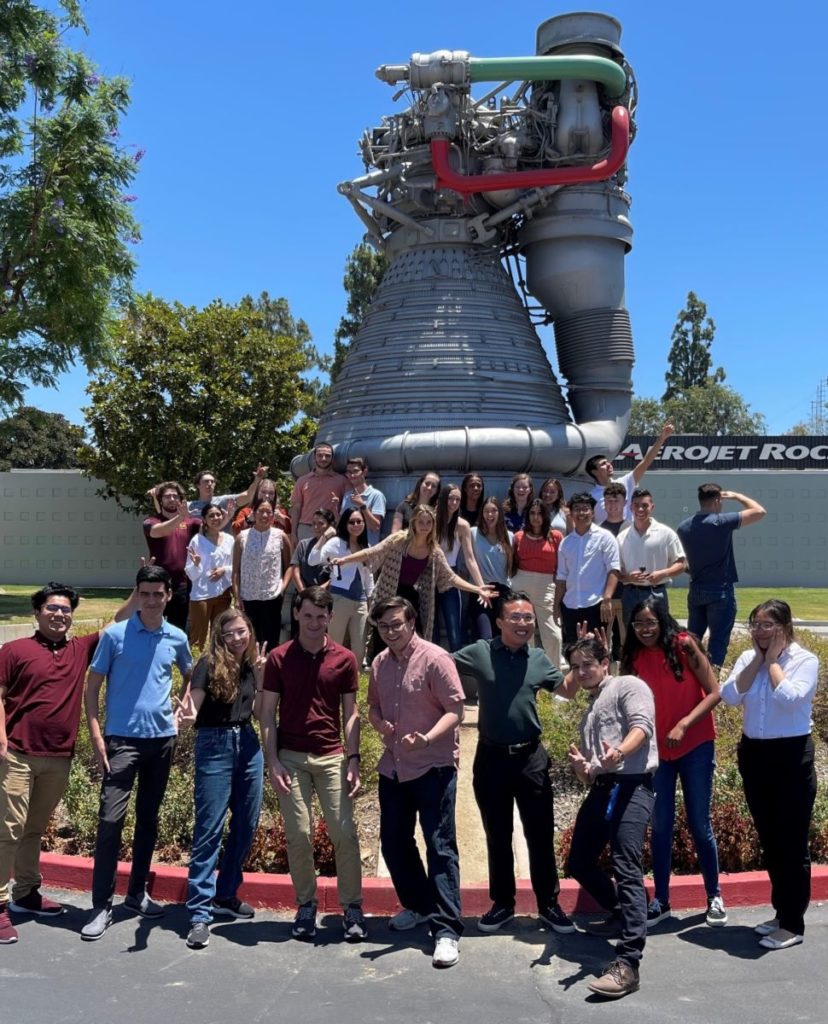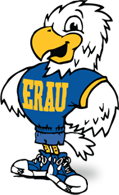by Paige Thompson
My name is Paige Thompson, and I am a rising senior studying Software Engineering on the cyber track. Software engineering has always been something that piqued my interest since my dad is a data scientist for IBM. Embry-Riddle seemed like the perfect fit for joining the women’s NAIA soccer team while pursuing a degree in software.
This summer, I completed a 10-week internship at Aerojet Rocketdyne located in Canoga Park, California. I was contacted through email by a recruiter after completing an online application. I accepted an offer and was placed on the Avionics Software team. Luckily, my brother lives in the area, so my living situation was covered for the summer. If this weren’t the case, however, there were many different intern groups who found and rented a house together for a few months.
I came in with the first group of interns, with all the others starting in groups every two weeks. Most of my fellow interns attended big schools like USC or Georgia Tech, so it was pretty neat being the only intern out of 50 that was representing a small school. I was also the only software engineering intern at the whole company, with the exception of one other in Huntsville, Alabama. The interns were all very social and nice, and we ate lunch together almost every day. Intern focals were assigned to us as well. They set up weekly socials and tours for us to get acquainted with the company and also see what we might want to venture into work-wise. Some tours included the materials lab, the rocket garden, and the space room.
For my role, I was tasked with automating tests for a Data Acquisition system that was used on the rocket test stand. The application was called DDACS, which ran in lieu of a rocket engine fire test, collecting and analyzing data. It was created by some veterans in the company, so there was a heavy learning curve to it. It dealt with reading Ethernet packets, creating Win Plot scripts and making sure the rocket was safely operating. Working with several different programs written in Visual Basic, I used C# in Visual Studio for testing. This proved to be challenging, especially considering my direct mentors were also newly hired. Nevertheless, the fact that we all were relatively new meant we seemed to be learning the software together, which was nice to know that I wasn’t alone in that respect.
My other project was updating a Hardware-Software Interface Document for the Engine Control Unit on the RS-25. This document had many slight changes that I had to find and note. For example, some stated boundaries were different by only 3 degrees, and some pin names had changed by only a letter or number. After noting these changes, it was to be sent to NASA for approval. Working on document tasks would not normally excite many people, but it was the perfect side project for me.

On my last week, it was Intern week. This consisted of many socials and guest speakers. We had an In-N-Out truck one day and cornhole set up for the whole week as well. Because of COVID, the company could not gather all of the interns, but we had a few interns from Sacramento fly in for the week. There were Intern meet-and-greets as well as fun games like trivia and hangman. I met many wonderful people from all over the nation, and I plan to keep in touch with a few of them.
My time at Aerojet Rocketdyne was rewarding and taught me way more than I could have expected. The people who work there are very welcoming and very passionate about what they do. I even met a Riddle grad who’s been at Aerojet for 15 years. We had fun comparing our school experiences. If you have the opportunity to work there or are passionate about rockets, I definitely recommend applying!





